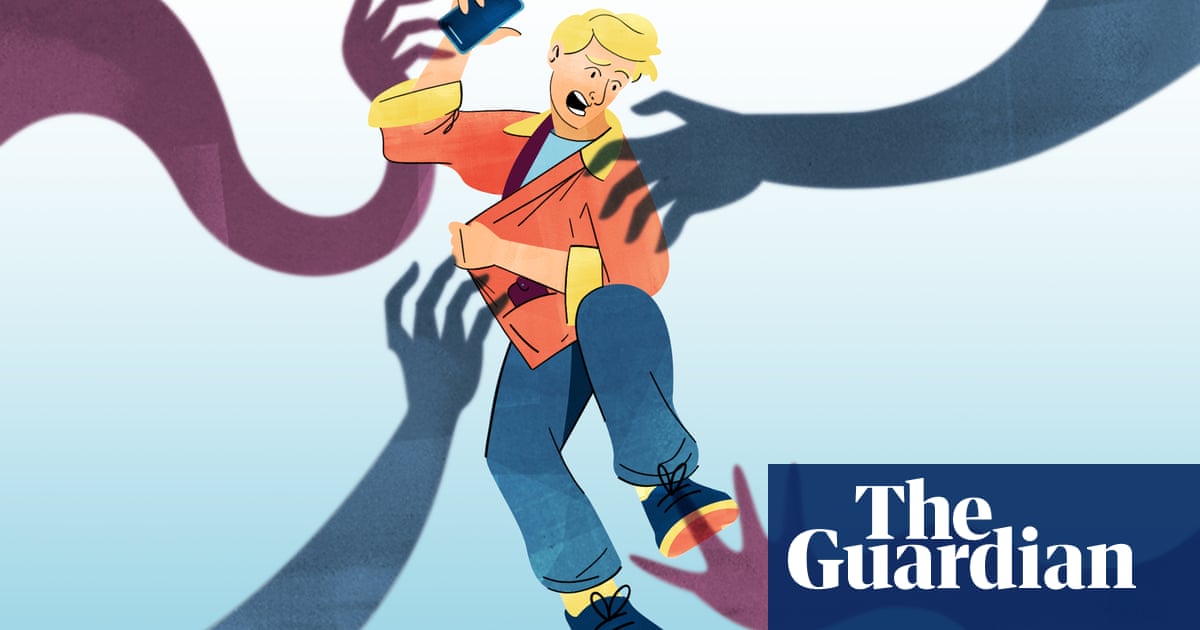
ontestants getting booted off of reality shows for misconduct is as core to the genre as the flinging of a drink in someone’s face during an argument. The disqualification of “Nasty” Nick Bateman from the first series of Big Brother for attempting to manipulate the house vote shook the nation – a move that 20 years later, would likely see him celebrated as an icon on the American iteration.
In 2012, Willam seemed in line to be crowned America’s next drag superstar, but left with the much more bad-ass title of the first ever Drag Race contestant to be disqualified. He was asked to leave after receiving a prohibited conjugal visit from his husband. But programmes often struggle with how to deal with cast behaviour that is too sinister to nearly package into a “villain edit”.
That’s the issue faced by 90 Day Fiancé, an American reality TV series on TLC that follows US citizens and their foreign spouses to be, as they navigate love and language barriers in the wake of their K-1 visa application. This year, the equally popular spinoff Before the 90 Days (following couples pre-proposal), saw lovelorn American Geoffrey Paschel fly to Russia to meet his girlfriend Varya Manila in person for the first time.
Their story centred on his hopes to come clean with her about drug charges that led to over two years behind bars. What he and the producers refused to address in the scenes were the various, more serious criminal charges he appeared in court for this January: aggravated kidnapping, domestic assault, interference with emergency calls, and vandalism. Last year, he was arrested after his live-in girlfriend said that he attacked her. Paschel has four ex wives, one of whom asked to file a protection order against him and another who claimed he had raped her multiple times.
Paschel denies all the allegations, but they are harrowing nonetheless, and at odds with the show’s lighthearted, rom-com-esque premise. But rather than kick him off (or not feature someone with such a chequered past), TLC have opted to simply ignore them, and the petition for his removal. It’s led to deeply uncomfortable viewing – when the couple fallout, it’s hard not to worry for Manila’s safety. As TLC continues to air episodes without even acknowledging the claims, Paschel continues to grow his platform on a widely watched show that casts him as a hopeless romantic on a weekly basis.
It’s not the first time that these programmes have failed to act appropriately in the face of controversy. On the 39th season of the American series Survivor, a castaway named Dan Spilo faced allegations of inappropriate touching of contestants. Producers allowed this to play out as a storyline on the show, keeping him on the island even after complaints had been made about his behaviour on camera. In fact, the first cast member to accuse him was initially voted off by fellow contestants – Spilo was only removed because of behaviour toward a member of the crew. The result was a disturbing, exploitative episode that should never have been aired.
Reality TV must find better ways of dealing with not only the frivolous, but also hard realities. This season of Ru Paul’s Drag Race at least attempted a flawed, but superior alternative. Contestant Sherry Pie, (real name Joey Gugiemelli), was revealed to have coerced at least eight different men into sending him videos of them masturbating, by masquerading as a casting agent – for which he has apologised saying he is seeking counselling. Fans called for the series to reshoot, but VH1 chose to proceed and made the unprecedented move of disqualifying Shery Pie before the show had even aired.
As all but the series finale had been filmed, (and Sherry Pie reportedly made it all the way to the final four of the competition), it was a disqualification that looked a little different. Drag Race fans know that its value lies not just in the cash prize of $100,000, but priceless exposure. Many of the show’s biggest success stories did not win the crown, but the hearts of millions – an ultimately more valuable prize.
The allegations surfaced before VH1 had a chance to reshoot the first episode, which led to a sickly launch that was too heavy on the Sherry – he received ample screen time and praise from the judges for his performances. But by episode two, it was apparent that he would have no character arc at all. All Gugiemelli’s confessional interviews were cut, as were any scenes that weren’t mandatory in making the episode make narrative sense. Whenever he wins a challenge, a post episode statement clarifies money won would be donated to The Trevor Project, a 24-hour confidential suicide hotline for LGBTQ youth.
Though the move sometimes leads to clunky, confused storytelling, it’s been effective in rendering Sherry Pie irrelevant. Gugiemelli has the smallest online following of any of the Queens – the show’s first eliminated contestant Dahlia Sin has garnered a following neatly three times as large. One can only imagine how his profile would have swelled had Drag Race approached things in the same way 90 Day Fiancé has.
More than most types of TV, reality shows can both create and elevate monsters. We cannot continue to understate its power as a platform, as well as the responsibility that comes with it.












